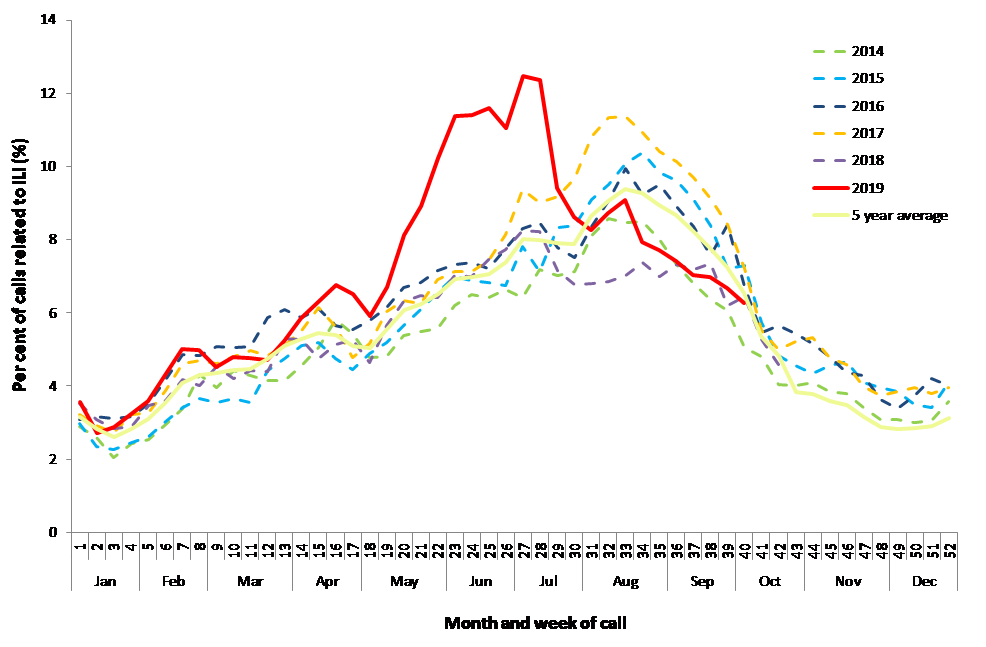Share facts, not flu: Q&A with Dr Anne Kinderlerer
Dr Anne Kinderlerer is a consultant acute physician and rheumatologist at St Mary’s Hospital. Here, she answers some common questions and shares facts about flu.
What is the flu?
Flu is a contagious viral infection. It can have animal hosts and human hosts and that is one of the reasons it changes each year. It can change in a major way, that’s when you have a major epidemic, but it changes a little bit year to year. For this reason, you have to have a flu vaccine every year rather than one vaccine that protects you for life.
How is flu spread?
Flu is spread when an infected person coughs or sneezes. Droplets of their saliva are released into the air and breathed in by other people. The virus can also be caught by touching surfaces where the droplets have landed. That’s why hand washing and face masks are protective, we infect ourselves when we touch a surface and then our faces.
People with mild or no symptoms can infect others without even knowing it. That is why we encourage all our staff to get vaccinated.
What does the flu do to your body?
The flu can cause inflammation in the upper respiratory tract – like a cold – but it can also cause severe inflammation in the lungs and in the heart. It causes inflammation in the muscles which is why when you have the flu you feel achy and terrible. It can also cause inflammation in the gastrointestinal sack, so some people experience vomiting and diarrhoea.
Essentially, flu is characterised by a high fever and achiness, where people feel really unwell, to the point they can’t get out of bed. It’s different in severity from an ordinary cold. You are often left feeling run down and tired for a period after having the virus.
Who does flu affect?
Flu affects all ages. People who are likely to suffer significant permanent harm, as a result of flu, tend to be the very young and the very old, and those patients who are immuno-compromised. When we have a big shift in what the flu virus looks like, it can affect different groups.
One of the reasons we’re particularly worried about flu this year, is that we’ve looked at the figures from Australia as their flu season precedes ours and they had very high case rates this year. The graph at right is produced by Healthdirect, a health advice service funded by the Australian government. The graph plots the percentage of calls their advice line received from patients reporting flu-like symptoms over the last five years – you’ll notice a big spike in 2019.

When we admit a lot of people into hospital who have flu or might have flu, it has a big effect on how the hospital works. We need to be able to make sure that they don’t infect other patients by treating them in side rooms. We also need to protect staff, and keep the hospital running and care flowing for every other patient who is sick in hospital.
Can flu symptoms be confused with other infections?
In the last flu season, we saw patients coming to A&E with flu, who look exactly the same as somebody presenting with sepsis. They have equal NEWS scores, equally high temperatures and many of them were as sick as our patients presenting with sepsis. It took time and hospital care for these patients to recover from flu.
Why should staff get the vaccine?
NHS frontline health and social care staff are considered an ‘at risk’ group because they are more exposed to the virus via patient contact. They're also more likely to unknowingly pass it onto patients. To help combat the spread of the flu virus to patients, families and colleagues, staff are encouraged to get the free flu vaccine.
How does the vaccine work?
The vaccine contains no live viruses – it contains the weakened strains of flu anticipated to infect people this flu season. It works by provoking an immune response to these strains, which teaches the immune system to fight them off. The World Health Organization reviews the global situation twice a year and advises on the recommended vaccine composition.
How are we battling flu at Imperial College Healthcare?
Flu is a major problem every winter and for staff the vaccine is our best way to prevent the spread of the virus.
For patients, early diagnosis and treatment is vital in ensuring patients have the best outcomes. Last year, a multidisciplinary team came together to provide a rapid flu screening service. Before the team was established, only 24 per cent of diagnostic samples were processed with results available within 24 hours. With the new service, 88.4 per cent of results were reported within six hours of sample collection. Following on from this achievement, we plan to set up on the spot service in high use areas such as A&E and acute medicine ahead of this winter.
Trust staff should see the ‘all about flu’ section of the intranet to find out where to get the vaccine. All others should speak to their pharmacist or GP to find out if they’re eligible to get the vaccine.


